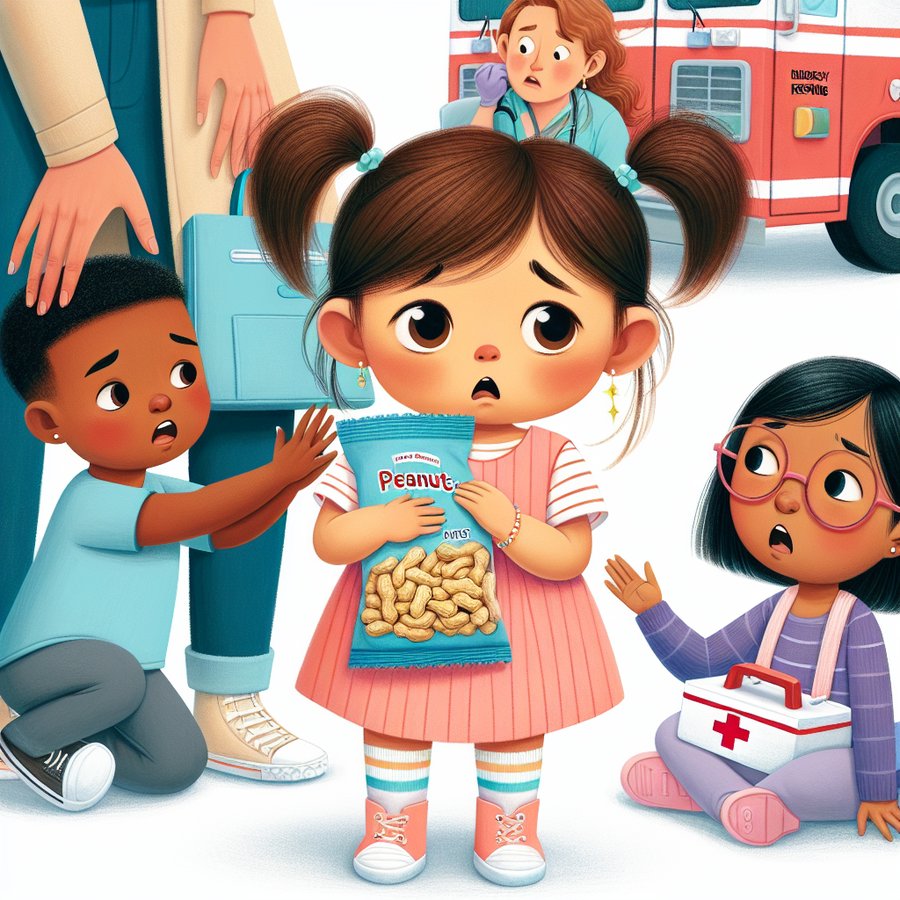Identifying Nut allergy signs in toddlers and emergency responses is a critical aspect of parenting and childcare. Nut allergies are one of the most common food allergies among children and can lead to severe reactions. Understanding these signs and how to respond can make a significant difference in managing a potentially life-threatening situation.
Recognizing the Early Signs of Nut Allergy in Toddlers
Nut allergies can manifest in various ways and recognizing the symptoms early can be life-saving. The most common signs include hives, swelling of the face, lips, or other body parts, difficulty breathing, and gastrointestinal distress. Toddlers might also exhibit irritability or discomfort which, while less specific, can still indicate an allergic reaction.
It’s essential for parents and caregivers to monitor their children closely after introducing new foods, especially those that contain nuts. Any change in behavior or physical symptoms should be noted and assessed with urgency. For further details on recognizing food allergies, refer to Recognizing Signs of Food Allergies in Infants.
Nut Allergy Signs in Toddlers and Emergency Responses
When a toddler exhibits signs of a nut allergy, it’s crucial to respond quickly and efficiently. The severity of allergic reactions can range from mild to life-threatening, so understanding the appropriate emergency response is vital. Immediate actions should include administering an antihistamine for mild reactions and using an epinephrine auto-injector for more severe symptoms, followed by contacting emergency services.
Preparation is key to managing nut allergies effectively. Parents and caregivers should ensure they have an action plan in place, which includes having accessible and up-to-date emergency medication, knowledge of how to use it, and awareness of the nearest medical facilities. For more information on creating an action plan, visit First Aid Kit Essentials for New Parents.
Prevention and Management Strategies for Nut Allergies in Toddlers
Preventing exposure to nuts is the most effective way to manage nut allergies. This involves careful reading of food labels, clear communication with caregivers or educational settings about the allergy, and educating the toddler, as they grow older, about their allergy. Avoiding cross-contamination by using separate utensils and cooking equipment is also crucial.
Additionally, parents should consider introducing allergenic foods early in a child’s life, as recent studies suggest this might help prevent the development of food allergies. Regular check-ups with an allergist can also provide personalized advice and management strategies. For more tips on allergy management, see Preventing Choking Hazards: Safe Foods for Infants and Toddlers and Navigating First Holidays with Food Allergies in Toddlers.
In conclusion, recognizing Nut allergy signs in toddlers and emergency responses is fundamental for the safety of children with nut allergies. Early detection of symptoms, immediate and appropriate emergency responses, and preventive measures can help manage nut allergies effectively. Parents and caregivers must stay informed, prepared, and vigilant to ensure the well-being of their children. For further reading on managing emergency situations in toddlers, refer to Essential First Aid Skills Every Parent Should Know.













